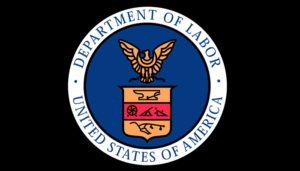In June of this year, Land Sense published an article about the change the U.S. Department of Labor announced in May for determining overtime eligibility. That rule change, which was set to go into effect on December 1, 2016, raised the minimum salary test for determining overtime eligibility to $47,892 annually.
In other words, the minimum salary test for determining overtime eligibility was raised from $455/week ($23,660 annually) to $921/week ($47,892 annually) for executive, administrative, and professional employees. The Department of Labor projected this change would apply to approximately 4.2 million American workers.
Shortly after the Department of Labor’s May announcement, 22 states and dozens of business and trade organizations filed suits in various federal courts. A few of those cases were consolidated into a case pending in the U.S. District Court for the Eastern District of Texas, where the plaintiffs filed motions asking that the court overturn, or at least delay, the implementation of the Department of Labor’s new threshold salary test.
On November 22, Texas District Judge Amos L. Mazzant III issued a ruling holding that not only was the new test stayed from implementation, but also the FLSA did not support any minimum salary floor at all based on a plain reading. Thus, pursuant to Judge Mazzant’s holding, any person employed in an executive, administrative, or professional capacity is ineligible for overtime pay no matter what their current salary. Furthermore, Judge Mazzant ruled that the Department of Labor is enjoined from implementing the salary threshold rule anywhere in the United States.
With Judge Mazzant’s ruling issued so close to December 1, 2016, it seemed unlikely that his decision would be appealed, let alone heard by any appellate court, prior to the planned implementation date, leaving employers at a loss as to how to proceed to ensure compliance with the FLSA. It is also unclear what actions Congress or the new Administration will take to either alter the FLSA or defend the Department of Labor in any forthcoming appeal or related suits. New questions are certain to arise regarding the eligibility of workers for overtime pay based on Judge Mazzant’s ruling.
If you have questions about whether your employees are eligible for overtime pay based on this new ruling, you should direct your queries to an attorney who can thoroughly review the current eligibility requirements with you. Please note that no part of Judge Mazzant’s ruling should be read to change an employer’s record-keeping responsibilities under the FLSA. Questions about this article, or about the Fair Labor Standards Act, can be directed to Michael Kalish.







